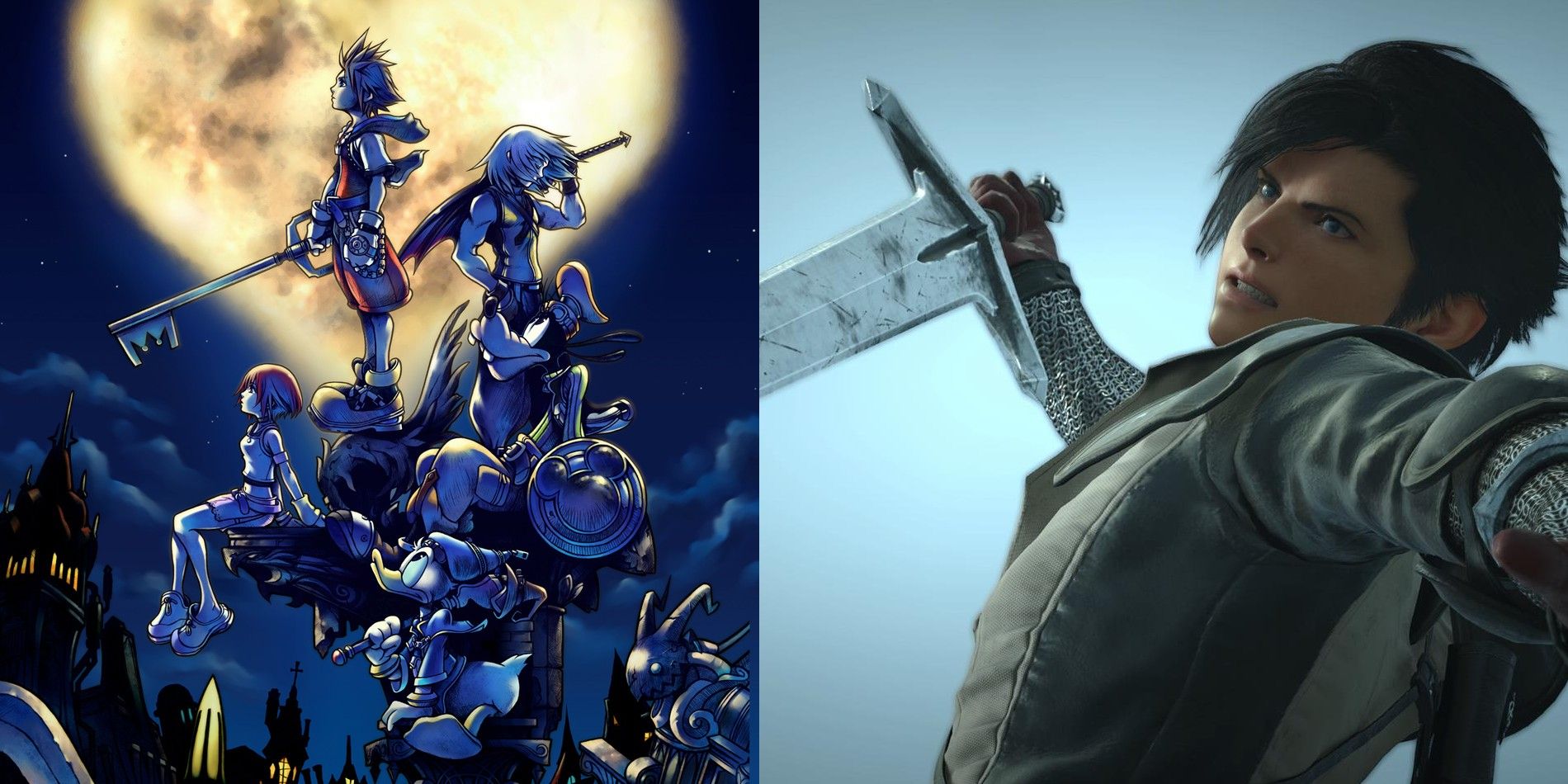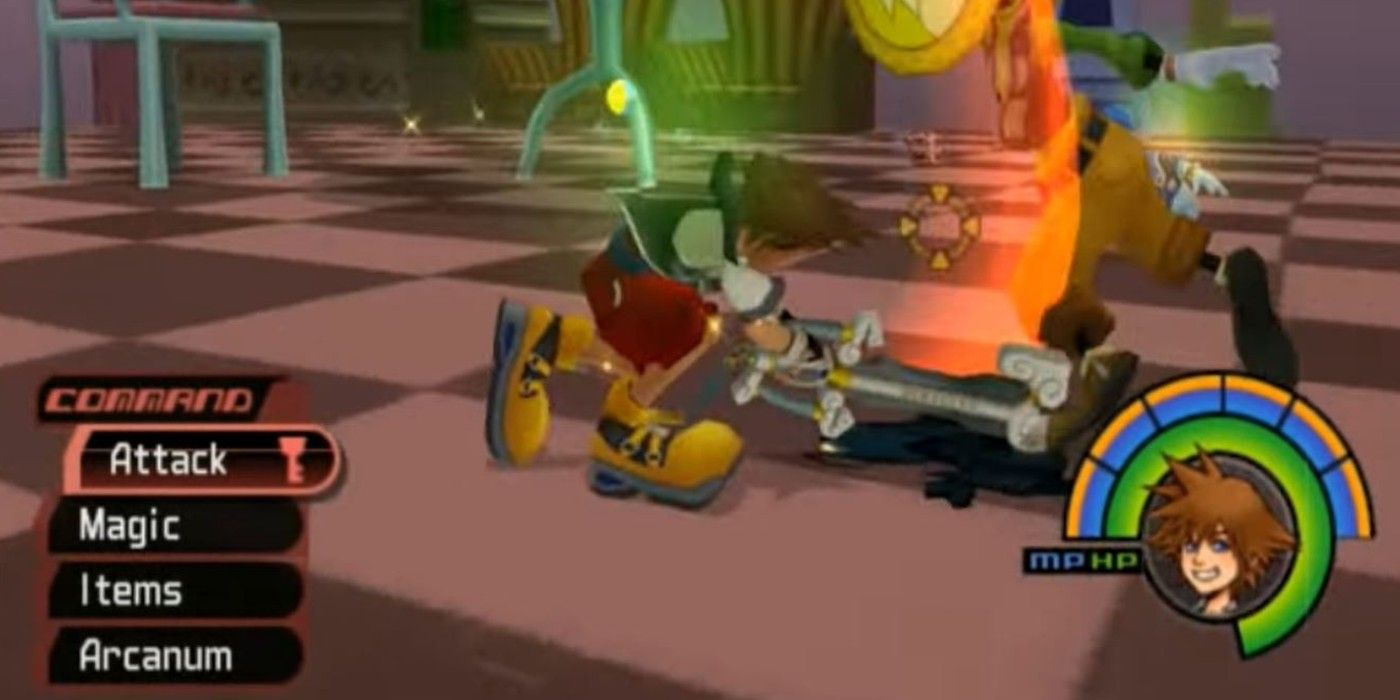
Though Kingdom Hearts is now its own sprawling franchise, the original 2002 release of the first game in the series held strong connections to the Final Fantasy series. Final Fantasy X had released one year earlier, and was a turn-based RPG, like the nine games that preceded it. Kingdom Hearts was an action RPG that combined characters from Final Fantasy with Disney characters, an odd notion at the time of its release, but one that proved highly successful. The Final Fantasy games have become more action-oriented since, largely abandoning their earlier turn-based format. The success of Kingdom Hearts as an action RPG could have influenced the direction of the Final Fantasy series.
Kingdom Hearts was not the first foray into action RPGs for Square. Prior to their merger with Enix, Square had produced the Mana series of action RPGs, beginning with the seminal Final Fantasy Adventure and moving to Secret of Mana for the Super Nintendo, the recently localized Trials of Mana, and the PlayStation's Legend of Mana (itself recently remastered). Square also developed the original PlayStation action RPG Brave Fencer Musashi, which received a PS2 sequel called Musashi: Samurai Legend. The distinction between action RPG series like Mana and Musashi, and Final Fantasy’s status as a traditional turn-based RPG series, would become much blurrier with games like Final Fantasy 11’s MMORPG release, and Final Fantasy 12, with its hybrid action and customizable Gambit System.
The popularity of Kingdom Hearts certainly owes a great deal to its combination of multiple popular IPs colliding, and a surprisingly intriguing story which became much more complex over time. Yet without reasonably well-crafted action gameplay, it likely would not have built up the reputation it carries now. Kingdom Hearts was a 3D action RPG, like the PS1’s Brave Fencer Musashi before it, but it brought quick combos, fast dodges and parries, and often frantic battles. While Final Fantasy 11 and Final Fantasy 14 were MMORPGs, and Final Fantasy 13 returned to the Active Time Battle system of earlier Final Fantasy games, Final Fantasy 15 marked the series’ shift to full action RPG, and the upcoming Final Fantasy 16 will follow suit.

Kingdom Hearts’ director Tetsuya Nomura was the original director of the game that would be eventually released as Final Fantasy 15, and producer Shinji Hashimoto also worked on both titles. Statements from Final Fantasy X staff members already indicated the company was looking to move away from turn-based games, and as Final Fantasy X released one year before Kingdom Hearts, it is a logical conclusion that Square Enix may have been using the Final Fantasy crossover game as a proving ground for the action approach.
Turn-based JRPGs still find success in the current market, as series like Persona and Trails of Cold Steel have shown, as well as Enix’s iconic Dragon Quest series, and Square Enix games like Octopath Traveler and the Bravely Default series. Dragon Quest and Final Fantasy have significantly diverged from one another as they've progressed, with Dragon Quest remaining rooted in the traditional JRPG turn-based style and Final Fantasy pushing for presentation over tradition.
As the company was already considering a shift to the action RPG genre as early as the time of Final Fantasy X’s release, it is hard to say that Kingdom Hearts is the sole reason for the change in the Final Fantasy series’ gameplay format. If Kingdom Hearts had not been well-received, it is possible the developer would have been less confident in the shift for their flagship series. Final Fantasy 15’s approach to the action RPG genre lacked the fluidity and responsiveness of most Kingdom Hearts games, but the Final Fantasy 7 Remake certainly matches (and arguably surpasses) the quality of Kingdom Hearts’ action gameplay. It is likely Square Enix will maintain the turn-based format for Dragon Quest, Bravely Default, and other “side project” games, including some mobile titles. But for Final Fantasy, it seems unlikely the main numbered entries will return to their roots.
https://ift.tt/3jCNKpI
July 05, 2021 at 12:39AM




